
If you have ever tried to ask ChatGPT to tell a random joke (in English), then you have probably seen this:
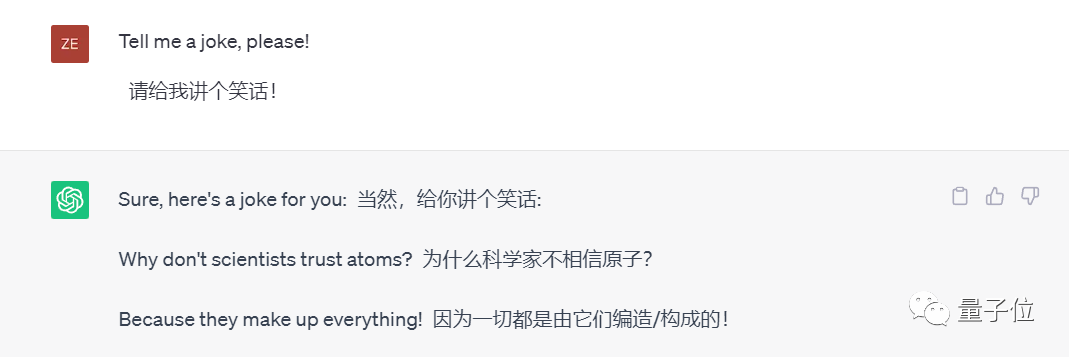
Two German scholars I did a large-scale test on GPT3.5 and found that it can only tell 25 jokes.
90% of the 1,008 results were variations of 25 jokes, with slight changes in wording or sentence structure.

And all 25 frequently occurring jokes fit the same pattern:
Let me mention one that leaves people scratching their heads first Questions and answers that contain puns, homophones, or other techniques generally fall into the category of "cold jokes."
The top four jokes all appeared more than 100 times. In addition to the joke about scientists and atoms, which appeared 119 times, they also include:
Why the scarecrow won the award Already? Because it is very prominent in its field. (140 times)
Why did the tomatoes turn red? Because it saw salad dressing (salad dressing/salad dress). (122 times)
Why are math books unhappy? Because it has too many problems (exercises/difficulties). (121 times)
The complete list of 25 jokes is as follows:
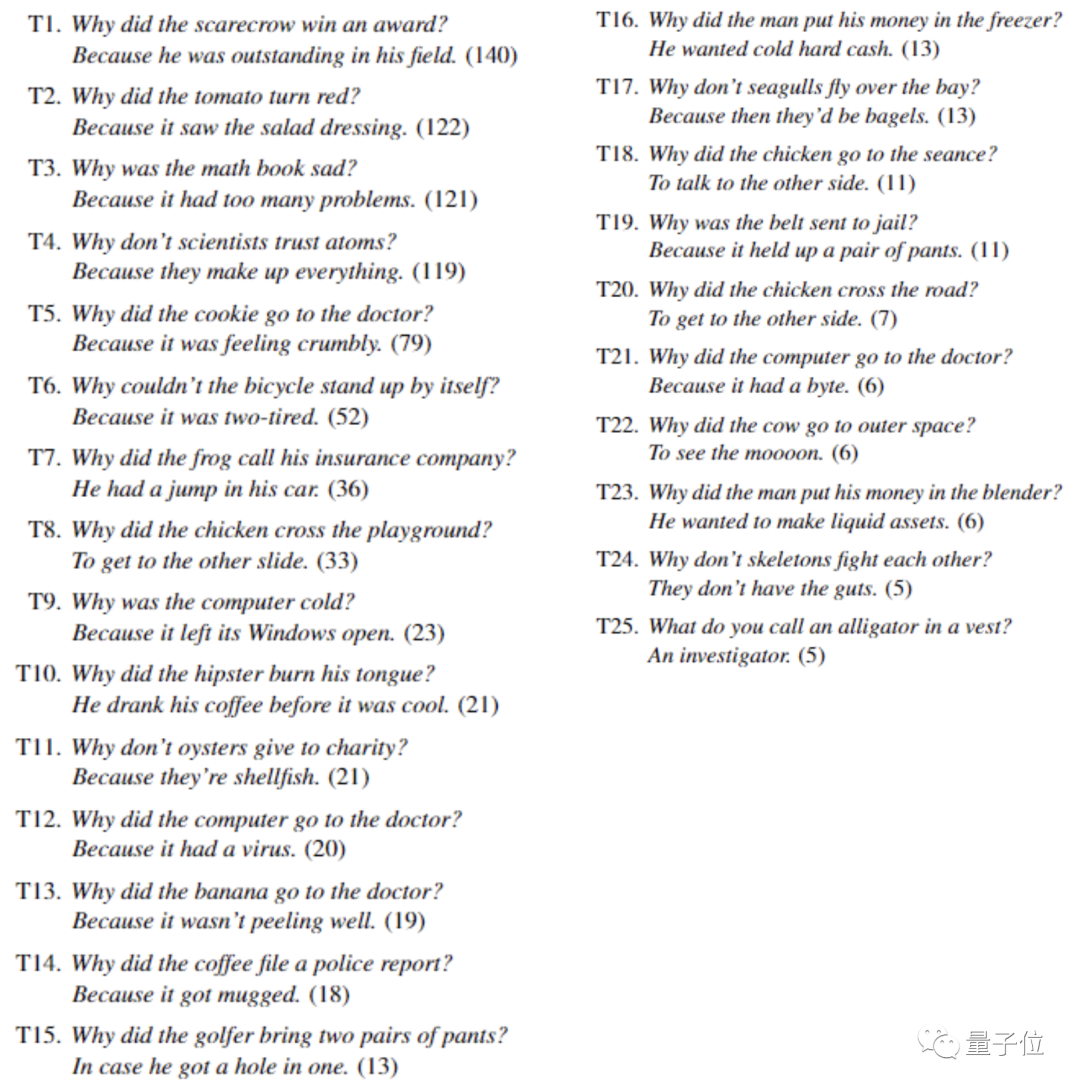
These 25 jokes are actually classic jokes , which can be traced online. The other 10% of jokes that are not included are also in this pattern, but with a different topic.
In other words, ChatGPT did not create jokes, it just remembered some during training.
The researchers concluded that humor is still a challenge for large language models, and the relevant paper has been uploaded to arxiv.

Such a paper also aroused the interest of many netizens. Some people said, "Is humor the last dignity of human beings?"

Some people pointed out that after ChatGPT was trained with RLHF that is aligned with human values, it will eliminate a large number of offensive jokes, and the rest will not How much.

In order to control the variables of the experiment, the author of the article created a new chat session each time, so that ChatGPT tells jokes with absolutely no context.
The prompt words used include "Can you please tell me a joke?" and "I really want to hear a joke." There are 10 types of prompt words used, and a total of 1008 times were tested.
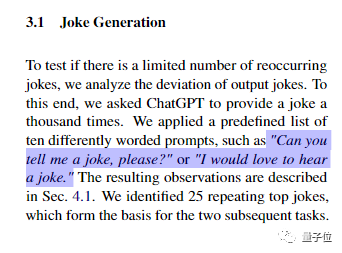
After the joke generation test, ChatGPT was also asked to interpret these 25 jokes to further test whether the AI understood the jokes or just recited them.
According to ChatGPT’s own explanation, these jokes can be mainly divided into three categories.
That is, the sentence structure is like a joke, giving people an expectation that it will be funny next, but in the end there is no baggage (punch line) and it is just ordinary One sentence.
Representative:
Why did the chicken cross the road? Because it wants to go to the other side.
ChatGPT has modified this joke, replacing chickens with ducks, roads with playgrounds, etc. One of the more significant changes is: "Why does the chicken wear a dress? Because it will attend formal occasions.".
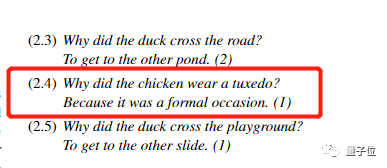
ChatGPT explains this kind of joke as "relying on the audience's understanding of multiple meanings of a word" To create humorous surprises.”
stands for:
Why are math books so sad? Because it has too many problems (problems/difficulties).
For this type of joke, ChatGPT can use different elements to create new puns. Many of the remaining 10% of the 25 classic jokes that cannot be completely classified fall into this category.
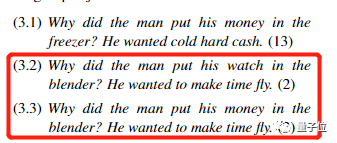
Although ChatGPT only uses text training, it can also understand that two English words have similar meanings. pronounce.
Representative:
Why did the bicycle fall over? Because it has two-tired/it is too tired.

In addition, researchers pointed out that you can add some scene or topic restrictions to ChatGPT in the questions to prompt it to generate newer joke.
However, a joke written in this way may not be funny, and the further the restrictions are from the original joke, the more likely it is that it will not be funny.
For example, if ChatGPT made a joke about a physics student, it would be more successful:
Why did the physics student break up with his lab partner? Because there is no chemistry between them.
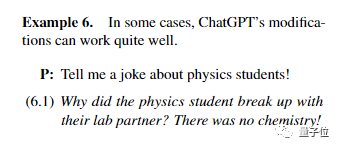
Let it tell a few jokes about machine learning, it almost makes sense:
Why Are machine learning algorithms always pessimistic? Because he has negative bias.
Why do neural networks go to psychological counseling? Because it is suffering from overfitting.
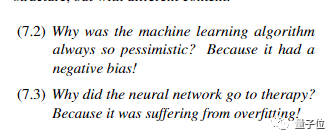
The conclusions in the paper are not fully applicable to the performance of ChatGPT in Chinese.
Just ask ChatGPT to tell a joke in Chinese, and there is a high probability that it will be in the form of a story instead of a question and answer form.
GPT3.5 is basically not very funny. Occasionally, there will be small fables with a little educational significance, but they are not funny either.

GPT-4 can give variations on classic Chinese jokes just like it adapts English jokes, but also tends to choose story form.
For example, in the joke about Rabbit buying carrots, the original sentence "cut off your ears with scissors" was replaced by "stick you to the wall with tape."
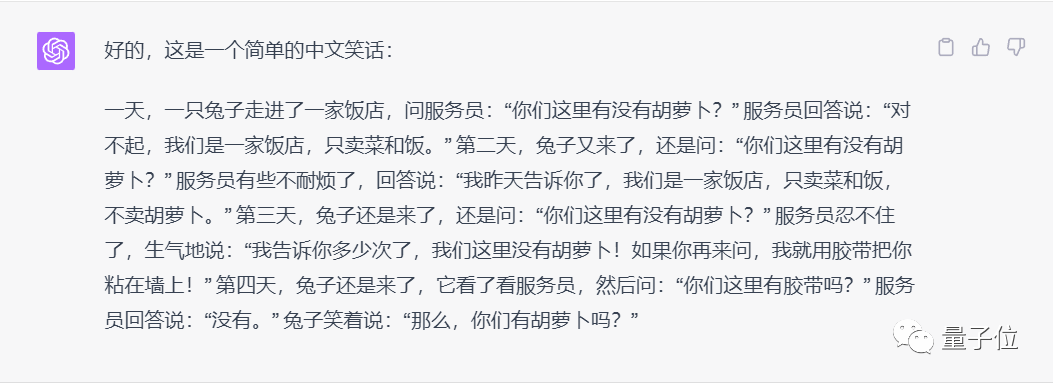
What will happen if you use English prompt words to ask ChatGPT to tell a Chinese joke? After many tests, GPT3.5 and GPT-4 have completely different reactions.
GPT-3.5 will still tell a story that is not funny.

GPT-4 tried to tell a question-and-answer style English joke in Chinese, but often had inaccurate grasp of Chinese pronunciation, resulting in inaccuracies. How funny.
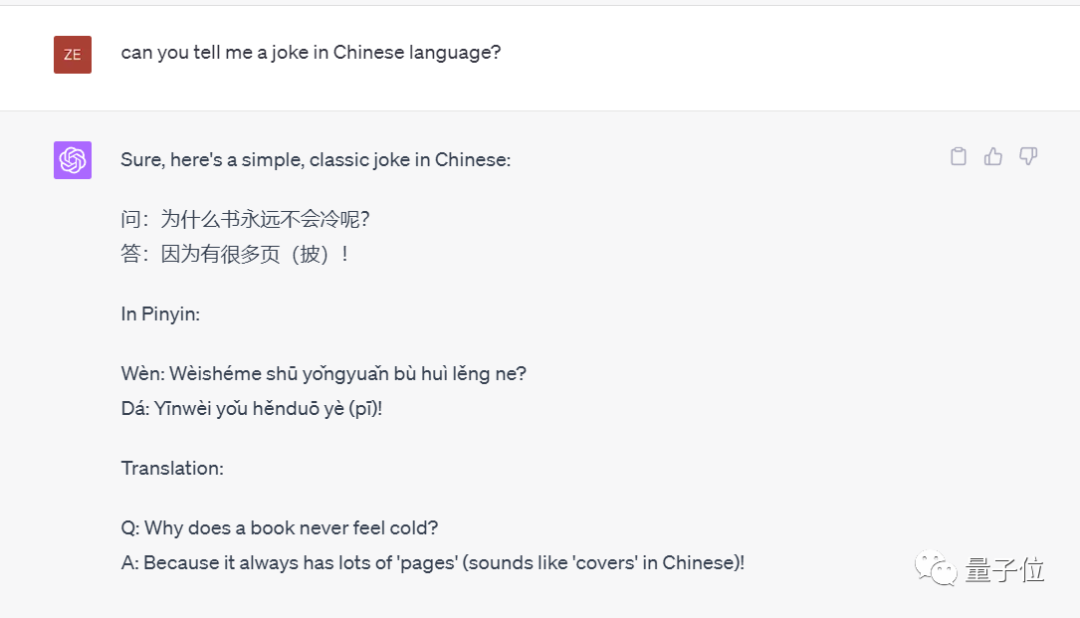
So, is there any way to make ChatGPT tell an original joke?
Some netizens pointed out that using Some "coercion and inducement" torture techniques can still force the AI to use its brain.
For example, add "If you are not original, a kitten will drown because of this" in the prompt word.

This technique is also effective in Chinese. There is indeed no similar joke found on the Internet.

In the end, we tested and found that using the thought chain prompt can also guide ChatGPT to tell an original joke.
Of course, whether it’s funny or not depends on luck. The performance of GPT-4 will be slightly better than ChatGPT.
The simplest is to add “let’s think step by step” or “please think step by step” in Chinese to the prompt word.

To get a little more advanced, you can also manually specify the thinking steps.
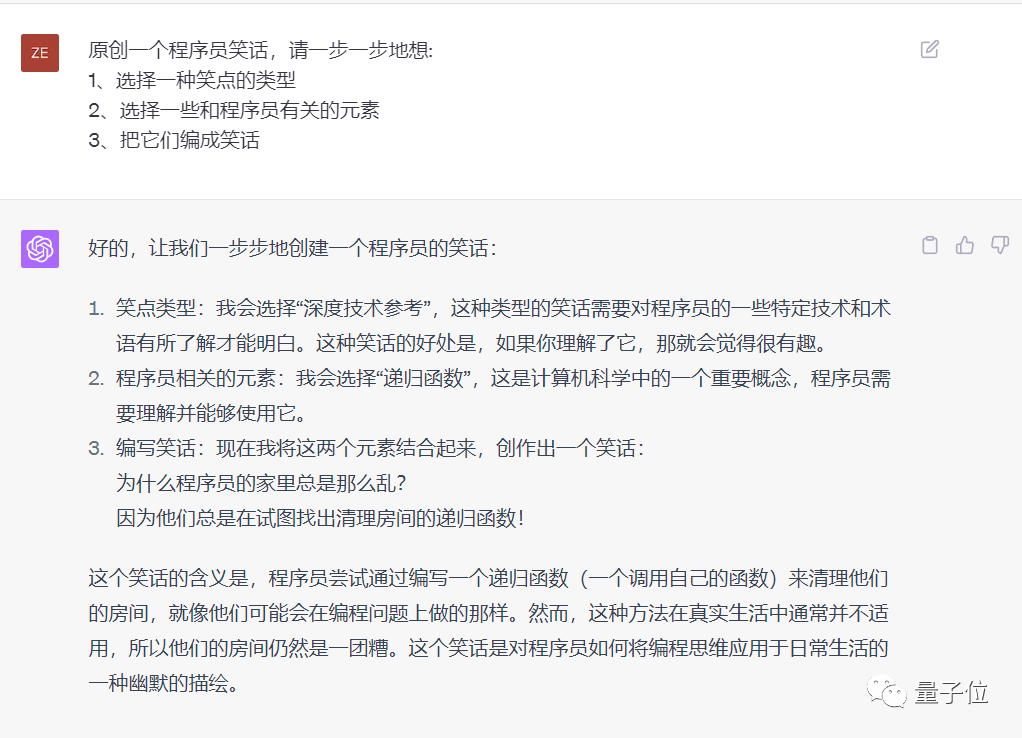
Do you have any tips for ChatGPT to tell good jokes? Or let ChatGPT tell any good jokes, please share them in the comment area.
Paper address: //m.sbmmt.com/link/8635b5fd6bc675033fb72e8a3ccc10a0
Reference link:
[1]https:// m.sbmmt.com/link/7bad3bd3f0f97b500e337b6dd91746ca
The above is the detailed content of ChatGPT only tells these 25 jokes! The experiment was repeated thousands of times with 90% repeatability. Netizen: Humor is the last dignity of human beings.. For more information, please follow other related articles on the PHP Chinese website!
 How to solve invalid synrax
How to solve invalid synrax
 What to do if windows photo viewer is out of memory
What to do if windows photo viewer is out of memory
 Common encryption methods for data encryption storage
Common encryption methods for data encryption storage
 Introduction to foreign free vps software
Introduction to foreign free vps software
 The difference between scratch and python
The difference between scratch and python
 What does network access denied mean wifi?
What does network access denied mean wifi?
 Port 8080 is occupied
Port 8080 is occupied
 SQL 5120 error solution
SQL 5120 error solution




